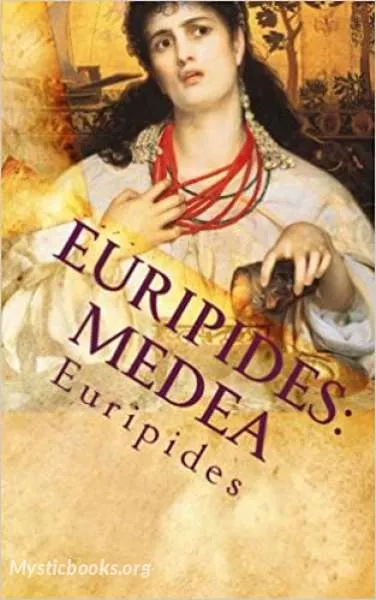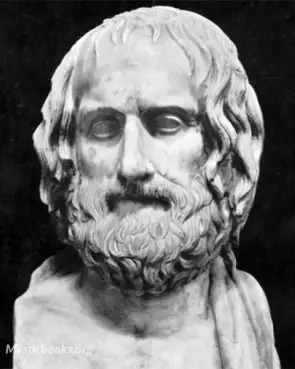
Medea
by Euripides
'Medea' Summary
Medea is centered on a wife's calculated desire for revenge against her unfaithful husband. The play is set in Corinth some time after Jason's quest for the Golden Fleece, where he met Medea. The play begins with Medea in a blind rage towards Jason for arranging to marry Glauce, the daughter of king Creon. The nurse, overhearing Medea's grief, fears what she might do to herself or her children.
Creon, in anticipation of Medea's wrath, arrives and reveals his plans to send her into exile. Medea pleads for one day's delay and eventually Creon acquiesces. In the next scene Jason arrives to explain his rationale for his apparent betrayal. He explains that he couldn't pass up the opportunity to marry a royal princess, as Medea is only a barbarian woman, but hopes to someday join the two families and keep Medea as his mistress. Medea, and the chorus of Corinthian women, do not believe him. She reminds him that she left her own people for him ("I rescued you [...] I betrayed both my father and my house [...] now where should I go?"), and that she saved him and slew the dragon. Jason promises to support her after his new marriage ("If you wish me to give you or the children extra money for your trip into exile, tell me; I'm ready to give it with a lavish hand",but Medea spurns him: "Go on, play the bridegroom! Perhaps [...] you've made a match you'll one day have cause to lament."
In the following scene Medea encounters Aegeus, king of Athens. He reveals to her that despite his marriage he is still without children. He visited the oracle who merely told him that he was instructed "not to unstop the wineskin’s neck". Medea relays her current situation to him and begs for Aegeus to let her stay in Athens if she gives him drugs to end his infertility. Aegeus, unaware of Medea's plans for revenge, agrees.
Medea then returns to plotting the murders of Glauce and Creon. She decides to poison some golden robes (a family heirloom and gift from the sun god Helios) and a coronet, in hopes that the bride will not be able to resist wearing them, and consequently be poisoned. Medea resolves to kill her own children as well, not because the children have done anything wrong, but because she feels it is the best way to hurt Jason. She calls for Jason once more and, in an elaborate ruse, apologizes to him for overreacting to his decision to marry Glauce. When Jason appears fully convinced that she regrets her actions, Medea begins to cry in mourning of her exile. She convinces Jason to allow her to give the robes to Glauce in hopes that Glauce might get Creon to lift the exile. Eventually Jason agrees and allows their children to deliver the poisoned robes as the gift-bearers.
Forgive what I said in anger! I will yield to the decree, and only beg one favor, that my children may stay. They shall take to the princess a costly robe and a golden crown, and pray for her protection.
In the next scene a messenger recounts Glauce and Creon's deaths. When the children arrived with the robes and coronet, Glauce gleefully put them on and went to find her father. Soon the poison overtook Glauce and she fell to the floor, dying horribly and painfully. Creon clutched her tightly as he tried to save her and, by coming in contact with the robes and coronet, got poisoned and died as well.
Alas! The bride had died in horrible agony; for no sooner had she put on Medea's gifts than a devouring poison consumed her limbs as with fire, and in his endeavor to save his daughter the old father died too.
While Medea is pleased with her current success she decides to take it one step further. Since Jason brought shame upon her for trying to start a new family, Medea resolves to destroy the family he was willing to give up by killing their sons. Medea does have a moment of hesitation when she considers the pain that her children's deaths will put her through. However, she steels her resolve to cause Jason the most pain possible and rushes offstage with a knife to kill her children. As the chorus laments her decision, the children are heard screaming. Jason then rushes onto the scene to confront Medea about murdering Creon and Glauce and he quickly discovers that his children have been killed as well. Medea then appears above the stage with the bodies of her children in the chariot of the sun god Helios. When this play was put on, this scene was accomplished using the mechane device usually reserved for the appearance of a god or goddess. She confronts Jason, reveling in his pain at being unable to ever hold his children again:
I do not leave my children's bodies with thee; I take them with me that I may bury them in Hera's precinct. And for thee, who didst me all that evil, I prophesy an evil doom.
Although Jason calls Medea most hateful to gods and men, the fact that the chariot is given to her by Helios indicates that she still has the gods on her side. As Bernard Knox points out, Medea's last scene with concluding appearances parallels that of a number of indisputably divine beings in other plays by Euripides. Just like these gods, Medea “interrupts and puts a stop to the violent action of the human being on the lower level, … justifies her savage revenge on the grounds that she has been treated with disrespect and mockery, … takes measures and gives orders for the burial of the dead, prophesies the future,” and “announces the foundation of a cult.”
She then escapes to Athens in the divine chariot. The chorus is left contemplating the will of Zeus in Medea's actions:
Manifold are thy shapings, Providence! / Many a hopeless matter gods arrange / What we expected never came to pass / What we did not expect the gods brought to bear / So have things gone, this whole experience through!
This deliberate murder of her children by Medea appears to be Euripides' invention, although some scholars believe Neophron created this alternate tradition. Her filicide would go on to become the standard for later writers. Pausanias, writing in the late 2nd century AD, records five different versions of what happened to Medea's children after reporting that he has seen a monument for them while traveling in Corinth.
Book Details
Authors

Euripides
Greece
Euripides was a tragedian of classical Athens. Along with Aeschylus and Sophocles, he is one of the three ancient Greek tragedians for whom any plays have survived in full. Some ancient scholars attri...
Books by EuripidesDownload eBooks
Listen/Download Audiobook
- Select Speed
Related books

pasiones del joven Werther by Johann Wolfgang von Goethe
Las pasiones del joven Werther es una novela epistolar que narra la historia de Werther, un joven artista profundamente sensible que se enamora de Cha...

A Tale of a Tub by Jonathan Swift
A Tale of a Tub. Written for the Universal Improvement of Mankind. was the first major work written by Jonathan Swift, arguably his most difficult sat...

Man That Corrupted Hadleyburg by Mark Twain
In the seemingly idyllic town of Hadleyburg, where honesty is held in the highest regard, a stranger arrives with a plan to expose the hypocrisy that...

Dan'l Druce, Blacksmith by W. S. Gilbert
Dan'l Druce, Blacksmith is a play by W. S. Gilbert, first produced in 1876. The play is set in the aftermath of the English Civil War, and tells the s...

Black Motor Car by Harris Burland
Jack Portheous, consumed by his love for the captivating Mrs. de la Mothe, commits a desperate act of embezzlement, planning a life together in South...

Anna Karenina, Book 5 by Leo Tolstoy
In the fifth book of Leo Tolstoy's epic novel, "Anna Karenina," we witness the contrast between the blossoming union of Levin and Kitty and the crumbl...

Braut von Messina oder die feindlichen Brüder - Ein Trauerspiel mit Chören by Friedrich Schiller
Die Braut von Messina ist ein Trauerspiel von Friedrich Schiller, das sich mit den Themen Schicksal, Bruderrivalität und verbotener Liebe auseinanders...

jugador by Fyodor Dostoyevsky
The story centers around Ivan Ivanovitch, a tutor for the children of a Russian general, who finds himself in a German resort town. He is a complex an...

Witch of Edmonton by John Ford
The Witch of Edmonton is a powerful and moving play that explores the themes of witchcraft, revenge, and the nature of good and evil. Set in 17th-cent...

When We Two Parted by George Gordon, Lord Byron
LibriVox volunteers bring you nine different recordings of When We Two Parted, by George Gordon, Lord Byron. This was the weekly poetry project for th...
Reviews for Medea
No reviews posted or approved, yet...